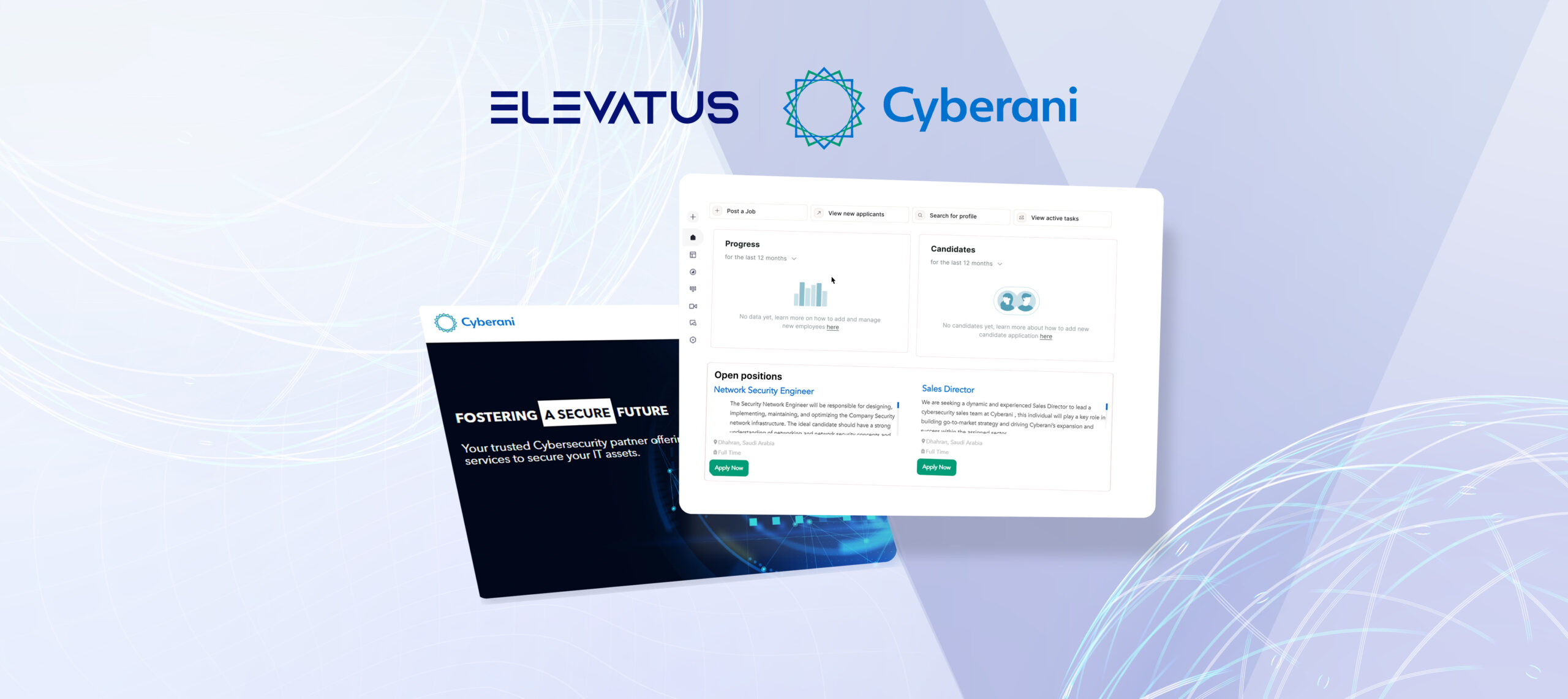
Tips and Tricks
Empowering Career Goals Interview Questions and Answers for Unstoppable Success
June 9, 2022
Reem Al-Tamimi
Content Writer
In the fast-paced and ever-evolving realm of recruitment, talent acquisition specialists wield a formidable set of skills that goes far beyond mere surface-level tasks. Beneath the surface, their mission resonates with a profound purpose, transcending the traditional boundaries of talent hunting. Their quest reaches beyond the realm of identifying top-performing individuals; instead, it delves deep into the heart of the company’s vision, aligning the very essence of success with the future stars they seek to bring on board.
But how do these questions become the guiding light? The answer is remarkably simple!
Career goals questions and answers allow you to unveil the innermost aspirations of candidates, guiding you toward the perfect match. They become the key that unlocks a candidate’s true potential, providing invaluable insights into their ambitions, passions, and dreams.
With each question and answer, you uncover hidden potential and discover the exceptional talents that will shape the future of your organization. So, are you ready to explore the realm of career goals interview questions and answers, and enhance your strategies with newfound insights? Let’s dive in.
The Must-Have Role of Career Goals Questions and Answers in Talent Acquisition
In the dynamic realm of talent acquisition, career goals interview questions and answers emerge as an indispensable tool for recruiters. But why are they an absolute must during the talent acquisition process?
Including career goals questions in the talent acquisition process goes beyond being a mere add-on. These questions serve multiple purposes and bring numerous benefits to the recruitment journey. Let’s explore why career goals interview questions and answers are essential:


- Guiding Your Hiring Decisions: By exploring candidates’ career goals, you align them with your company’s long-term objectives. This ensures that chosen candidates have a vision that harmonizes with the organization, contributing to future success.
- Boosting Job Offer Acceptance: Career goals questions show candidates that you care about their long-term growth and success. This genuine interest in their aspirations increases the chances of job offer acceptance. After all, who wouldn’t want to work for a company that invests in their dreams?
- Creating a Full Candidate Profile: Probing into career goals reveals a candidate’s motivations, training needs, and potential. This valuable insight helps you identify candidates who could be a great fit for other roles within your organization.
- Targeted Talent Acquisition: By asking specific career goals questions, you gain insights into candidates’ knowledge gaps, desire for learning, skill enhancement, and career plans. Armed with this information, you can fine-tune your talent acquisition strategy and find the perfect match.
So, get ready to infuse your talent acquisition process with excitement. Embrace the power of career goals interview questions and answers, and witness the magic unfold. They guide your hiring decisions, increase job offer acceptance, reveal hidden potentials, and enable targeted talent acquisition. It’s time to embark on this captivating journey and unlock the true potential of your future stars.
Essential Career Goals Interview Questions and Answers
Now, what are these magical career goals interview questions and answers that help talent acquisition specialists gain massive insight into the candidate’s potential? Career goals interview questions hold the key to unraveling a candidate’s motivations and how their potentials align with the company’s long-term career goals.
Let’s explore the power of these career goals interview questions and answers that illuminate the path to successful talent acquisition.
Question 1: What do you want to learn more about in your area of expertise?
Importance: This question allows recruiters to gauge a candidate’s desire for professional growth and their commitment to staying up-to-date in their field. It demonstrates their willingness to learn and adapt to industry advancements.
Insight for Recruiters: By asking this question, recruiters can assess a candidate’s level of curiosity, passion for their work, and proactive approach to self-improvement. It also reveals their awareness of emerging trends and technologies within their area of expertise.
Sample Answer: “In my area of expertise, I’m keen on expanding my knowledge in data analytics. I believe that advancements in data visualization techniques and machine learning algorithms can greatly enhance my ability to derive valuable insights from complex datasets.”
Question 2: Do you intend to continue your studies? If so, what profession would you pursue?
Importance: This question delves into a candidate’s commitment to lifelong learning and their willingness to invest in further education. It sheds light on their aspirations for professional development beyond their current skill set.
Insight for Recruiters: By inquiring about a candidate’s intention to pursue further studies, recruiters can gauge their level of ambition, dedication to personal growth, and alignment with the organization’s culture of continuous learning.
Sample Answer: “Yes, I do have plans to pursue further studies in project management. I believe acquiring advanced certifications in this field will equip me with the necessary skills to lead complex projects and contribute to the company’s success.”


Question 3: What are your long-term career goals, and how do you intend to attain them? (You can pick a time range, for example, 3 to 5 years)
Importance: This question provides valuable insights into a candidate’s vision for their professional journey. It helps recruiters assess their level of ambition, strategic thinking, and alignment with the organization’s long-term objectives.
Insight for Recruiters: By understanding a candidate’s long-term career goals, recruiters can evaluate their compatibility with the company’s growth opportunities, career progression, and potential for leadership roles. It also allows recruiters to identify candidates with a clear roadmap for achieving their aspirations.
Sample Answer: “My long-term career goal is to become a marketing manager within the next five years. To attain this, I plan to enhance my leadership skills by taking on cross-functional projects, attending industry conferences, and pursuing advanced marketing certifications. I believe this strategic approach will equip me with the necessary expertise to lead successful marketing campaigns and contribute to the company’s growth.”
Question 4: In your opinion, what skills or training can help you be better in your current position?
Importance: This question reveals a candidate’s self-awareness and their ability to identify areas for improvement. It demonstrates their commitment to professional growth and their willingness to acquire new skills to excel in their current role.
Insight for Recruiters: By exploring a candidate’s perspective on skills and training, recruiters can assess their proactive approach to self-development, their receptiveness to feedback, and their potential for adapting to evolving job requirements.
Sample Answer: “I believe that enhancing my proficiency in project management software and improving my communication skills would greatly benefit me in my current position. Acquiring these skills would allow me to collaborate with cross-functional teams effectively, streamline project workflows, and deliver high-quality results within the given timelines.”
Master the Art of Assessing Candidates’ Answers to Career Goals Interview Questions


In the ever-evolving realm of talent acquisition, career goals act as a guiding compass for recruiters in their quest to discover the ideal match. However, once these pivotal career goal inquiries have been posed, how can recruiters effectively harness this valuable information to refine their talent acquisition process? Here are some essential aspects to contemplate:
- Building Training Programs: Utilize career goals for candidates and skills as a foundation for developing comprehensive employee training programs. Align their aspirations with the skills required for the position, fostering growth and development.
- The Desire for Learning: Some candidates aim to learn new things or enhance existing skills. Embrace and support their aspirations if they align with the position, providing opportunities for continuous improvement and professional growth.
- Future Education Plans: A candidate expressing interest in further education should not be immediately rejected. Instead, follow up with them to understand their motivations and how their future studies align with their career goals.
- Diverse Career Paths: Candidates’ career goals may not always directly correlate with their education or past experience. However, this should not be seen as a barrier. In fact, employees with diverse academic and professional backgrounds often bring unique perspectives and become valuable risk-takers within the organization.
With these points, recruiters can nurture talent based on candidates’ career goals. This approach fosters a supportive environment for growth, continuous learning, and diverse experiences, ultimately leading to the success and innovation of the organization.
Red Flags You Need to Pay Attention to While Asking Interview Questions About Career Goals
As a talent acquisition specialist, you must embark on a quest to find the perfect match between candidates and positions. However, amidst the excitement, it’s crucial to keep an eye out for potential red flags. When asking interview questions about career goals, certain signs may indicate a mismatch or potential challenges in the candidate’s answer. Let’s dive into these red flags with a touch of excitement:
- Set goals that don’t align: When candidates set goals incompatible with the company’s objectives or the position itself, it could be a recipe for future conflicts. Pay attention to candidates whose career paths don’t correspond to the position they applied for, as it may lead to retention issues down the road.
- Lost in lack of ambition: Keep an eye on candidates who find it challenging to establish both short-term and long-term goals, as this could indicate a sense of disengagement in their work. Be vigilant for signs of a lack of ambition, as it can potentially affect their motivation and commitment to the role.
- Unrealistic career goals: While fresh graduates may be uncertain about their near future, experienced professionals expressing unrealistic career goals could raise concerns. Keep an eye on candidates whose aspirations seem far from realistic, as it may indicate a misalignment with the organization’s expectations.
Remember, spotting warning signs in career goal discussions can help avoid potential issues and ensure a better fit between candidates and positions. Let the quest for the perfect match continue!


Wrapping It Up
As you peel back the layers with each question, hidden gems of motivation and potential are revealed. It’s an exhilarating adventure, guided by your intuition and insight, leading you to exceptional candidates destined to thrive within your organization.
The talent acquisition process may have felt overwhelming. But armed with the right career goals interview questions and answers, you have the power to shape the future and create a thriving environment where dreams and goals intertwine.
Do you want to delve deep into the depths of each candidate’s potential and ensure they are the flawless match for your organization?
EVA-SSESS is the ultimate solution for identifying, assessing, and hiring top talent in record time!
It’s a cutting-edge video interviewing software, EVA-SSESS empowers organizations with richer insights during the assessment process. Through advanced AI technology, reliable video-based assessments, and scientifically validated psychometric reports, EVA-SSESS revolutionizes the way companies evaluate candidates. Where they can identify ideal keywords, rank applicants, filter out correct answers, and seamlessly assess skills that are traditionally challenging to measure. EVA-SSESS is a transformative solution that enables organizations to make informed hiring decisions efficiently and effectively. request a demo today!
Turn top talent to employees fast
Hire, assess, onboard and manage top talent for every job. See how Elevatus streamlines everything; from acquire to new hire.
Request a demoAuthor
Reem Al-Tamimi
Don't miss a thing!
Stay one step ahead. Subscribe and get the latest updates, news, and insights from Elevatus straight to your inbox.







